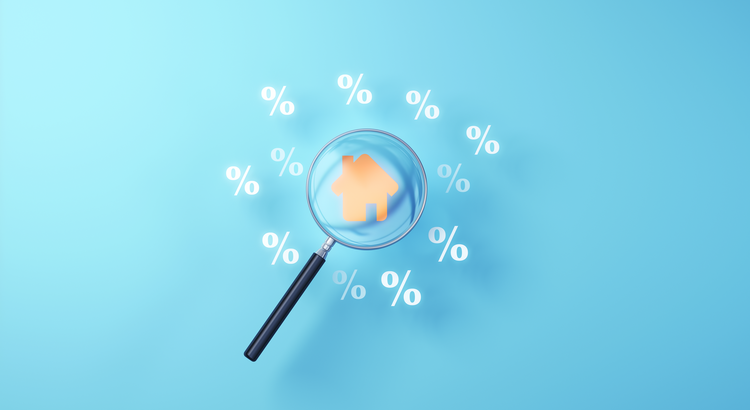The Federal Reserve (commonly known as “the Fed”) plays a significant role in shaping the U.S. economy, and its decisions have a direct impact on the housing market. From mortgage rates to home affordability, the Fed’s actions can either fuel or slow down housing demand. As we look toward the Fed’s next move, many homebuyers, sellers, and investors are wondering how it will influence their real estate decisions.
Let’s break down how the Fed’s monetary policies affect the housing market, what factors could guide their next move, and what you need to know if you’re thinking about buying or selling a home.
What Does the Federal Reserve Do?
The Federal Reserve is responsible for managing the U.S. economy by adjusting interest rates and regulating the money supply. One of the Fed’s key tools is the federal funds rate, which is the interest rate at which banks borrow and lend money to each other overnight. Although this rate doesn’t directly set mortgage rates, it does influence them.
When the Fed raises or lowers the federal funds rate, it impacts the entire economy, particularly borrowing costs for consumers and businesses. This, in turn, has a ripple effect on the housing market.
How the Fed’s Actions Affect Mortgage Rates
Mortgage rates are not directly tied to the federal funds rate, but they are influenced by it. Here’s how it works:
When the Fed Raises Rates
When the Fed increases interest rates, it becomes more expensive for banks to borrow money. As a result, banks pass those higher costs on to consumers in the form of higher interest rates on loans, including mortgages. This means that as the Fed raises rates, mortgage rates typically rise as well, making it more expensive to borrow money to buy a home.
When the Fed Lowers Rates
Conversely, when the Fed lowers rates, borrowing becomes cheaper. Mortgage rates often drop in response, making home loans more affordable. This can boost housing demand, as buyers are more likely to enter the market when they can secure lower mortgage rates.
The Fed’s Next Move: What to Expect
The Fed adjusts interest rates based on economic conditions, particularly inflation and employment. If inflation is too high, the Fed is likely to raise rates to cool off the economy. On the other hand, if the economy is slowing down, the Fed may cut rates to encourage spending and investment.
As of now, many economists are keeping a close eye on inflation, job growth, and consumer spending. These factors will influence the Fed’s next move, and the outcome will have a direct effect on the housing market.
How a Rate Hike Could Impact the Housing Market
If the Fed chooses to raise rates in its next meeting, here’s how it could impact the housing market:
1. Higher Mortgage Rates
A rate hike would likely lead to higher mortgage rates, making it more expensive for buyers to finance a home. This could reduce buyer demand, as some would-be homeowners may be priced out of the market.
2. Lower Affordability
As mortgage rates rise, monthly payments on home loans increase, making homes less affordable for many buyers. In markets where home prices are already high, this could lead to a slowdown in home sales or put downward pressure on home prices as sellers adjust their expectations.
3. Cooling Buyer Demand
If mortgage rates rise sharply, we could see fewer buyers entering the market. This could lead to a shift toward a more balanced market, where homes take longer to sell, and sellers may need to be more flexible on price.
4. Impact on Refinancing
Rising interest rates also affect homeowners looking to refinance their mortgages. With higher rates, refinancing becomes less attractive, meaning fewer homeowners will opt to refinance their existing loans to lower their monthly payments.
How a Rate Cut Could Impact the Housing Market
If the Fed opts to cut rates or keep them steady, it could have the following effects on the housing market:
1. Lower Mortgage Rates
A rate cut could lead to a decline in mortgage rates, making home loans more affordable. This could stimulate buyer demand, particularly among first-time homebuyers or those looking to upgrade to a larger home.
2. Increased Affordability
Lower interest rates make borrowing cheaper, allowing buyers to purchase more expensive homes or enjoy lower monthly payments. This could reignite demand in markets where affordability has been a concern.
3. Increased Buyer Competition
If mortgage rates fall, we could see a surge in buyer activity as more people look to take advantage of the lower rates. This could lead to bidding wars in some markets and drive home prices higher.
4. Refinancing Opportunities
A drop in interest rates could encourage homeowners to refinance their mortgages, potentially reducing their monthly payments or allowing them to access equity for home improvements or other investments.
What Should Buyers and Sellers Do?
Whether the Fed raises or lowers rates, buyers and sellers should be prepared to navigate a shifting market. Here are some tips for both sides:
For Buyers
- Lock in Rates Early: If you’re concerned about rising mortgage rates, it might be a good idea to lock in a rate as soon as you can. Even a small increase in interest rates can add up over the life of your mortgage.
- Adjust Your Budget: If mortgage rates rise, you may need to adjust your budget or expectations. Higher rates could mean you’ll qualify for a smaller loan or need to look at less expensive homes.
- Consider a Fixed-Rate Mortgage: In times of uncertainty, a fixed-rate mortgage can provide stability. Unlike adjustable-rate mortgages (ARMs), your interest rate will stay the same over the life of the loan, no matter what the Fed does.
For Sellers
- Price Competitively: If mortgage rates rise and buyer demand cools, pricing your home competitively will be crucial. Work with a real estate agent to assess local market conditions and set a price that attracts buyers.
- Prepare for Longer Sales Times: In a rising rate environment, homes may take longer to sell. Be prepared for the possibility of extended time on the market.
- Highlight Affordability: If you’re selling, make sure to highlight any features that make your home more affordable to own, such as energy-efficient appliances or low property taxes.
Final Thoughts: Stay Informed
The Federal Reserve’s next move could have a big impact on the housing market, and it’s important to stay informed as the situation develops. Whether you’re buying, selling, or just keeping an eye on the market, understanding how changes in interest rates affect housing demand, mortgage rates, and affordability can help you make better decisions.
Get Expert Advice If you’re unsure how the Fed’s upcoming decisions might impact your homebuying or selling strategy, contact me today. I can provide guidance based on your unique situation and help you navigate the changing market with confidence.

Providing guidance and assisting motivated buyers, sellers, tenants, landlords, and investors in marketing and purchasing property for the right price under the best terms. Determining clients’ needs and financial ability to purchase the best home for them. Call me today and let me help you find a home that can change your life!
